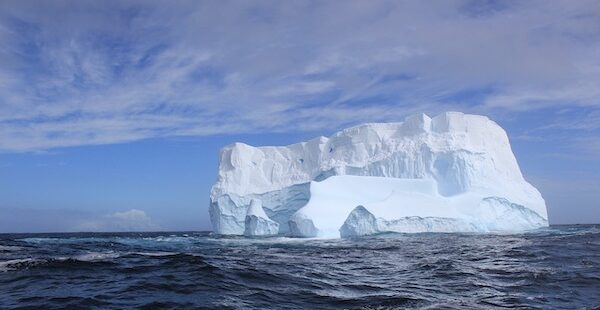
Providence, Responsibility, and the Leadership Lessons of Earnest Shackleton
I read again the story of Earnest Shackleton’s Antarctic expedition – and even though I had read the book and knew the ending, I could not put it down. How could it be that the survivors of a shipwreck could survive for months floating on polar ice until they reach a rocky snow-covered island? And then, how could a crew of only six men, armed with simple navigation tools, pilot a lifeboat across one of the roughest seas in the world to a miniscule island 800 miles away? If this was fiction, we would tell the author to try to make his story more believable. (The book is well worth your time – “Endurance: Shackleton’s Incredible Voyage” Also, BEWARE – spoilers ahead!).
After completing the book, I could barely sleep. The image that kept crossing through my mind was the impossibly high cliffs of Elephant island, snow falling gently, and Skua Gulls soaring effortlessly past the rocky craigs. But a second effect of this book was to cause me to think long and hard about the interplay between God’s sovereignty and man’s responsibility.
Shackleton was a great leader of men. The fact that every man in his party survived is evidence of his leadership. There were times when he made difficult decisions, and there were time when he asked men to make deep sacrifices. “Scott for scientific method, Amundsen for speed and efficiency, but, when disaster strikes and all hope is gone, get down on your knees and pray for Shackleton” said one of his admiring contemporaries. We can safely assume that without Shackleton’s leadership, many or all of the party would have been lost.
Yet for all that we can learn from Shackleton, what I found most remarkable about the story was how little Shackleton’s efforts actually counted. Let me give one example. At a certain point, after floating on an ice floe for months, the ship’s crew noticed that the floes were breaking up. Their ship had long since been crushed by the ice and slipped beneath the surface of the Weddell Sea. This meant that the crew, three lifeboats, and all their supplies were on a floe which was daily getting smaller. But it was also splitting apart.
As the floe drifted into warmer waters, it cracked multiple times. At a certain point, the floe would become too small to carry them. This is where the three lifeboats were so important. Sometimes the water around the flow would open up, but then it would close back together, as the ice floes compacted and shards of ice crushed up against each other. This was the problem: to wait too long on the floe was to eventually end up in the water itself, freezing to death – but to put the lifeboats into the water too early was to risk them being crushed when the ice re-compacted. Either situation entailed death within minutes. So how long do you wait before you put the boats in the water?
It was an impossible question to know with certainty. Several times the water opened up, with clear channels around the floe. Several times Shackleton had the opportunity to put the boats in, but he wisely didn’t, and the ice compacted shortly thereafter. But as the floe continued to split – each time becoming smaller – Shackleton just had to decide. At one promising moment, he made the decision. The men launched the boats and boarded them. The ice did not re-compact, and the men sailed away.
Of course this is a story of Shackleton’s incredible leadership, his nerves of steel, his deep experience of polar conditions, to know when was the best time to embark. But it is also the story of God’s sovereignty over the waves. Because at the end of the day, Shackleton had no guarantee that the ice wouldn’t refreeze or compact together. If it had, the boats would have been smashed to splinters and everyone would have died.
Or take another example. After weeks on the ice, Shackleton decides that it is time for the men to start traveling toward the land. It is grueling to manhaul lifeboats across ice floes, along with all the provisions and food for an entire ship’s crew. But for days the crew does this, sweating, laboring, heaving the boats and equipment. Yet after days of work, Shackleton realizes that they have made less than 10 miles of progress. And so he calls off the attempt. They are hundreds of miles from any aid or supply, and it is impossible for them to make their way to it.
Instead, they sit. For weeks they wait on the ice floe, which is slowly drifting on the current and being blown by the wind. It is monotonous and finger-biting. They cannot help themselves. The floe will either drift toward the land, or away from the land. If it drifts toward the land, they might survive. If it drifts away from the land, they have practically no chance. The Southern Ocean covers almost 8 million square miles, and to drift in the wrong direction would be to eventually enter the southern Atlantic Ocean, even more millions of miles of stormy water.
By God’s grace, the ice floe drifts toward the land. And while there are a few anxiety-producing moments when it is blown out toward sea, it generally keeps going toward the land. Only because of this the crew has a chance of survival. As I reflected on this, I came to realize how totally the expedition survived based on the right factors coming together. Nothing Shackleton did would affect the direction of drifting ice floes. To travel across the ice was impossible. It was only the direction of God which gave them a fighting chance.
At the end of the day, the story of Shackleton is exactly that: God gives them a fighting chance (just barely), and they seize it with all the willpower that humans can muster. Chip away even a grain from either side of the equation, and they all die. What does this have to teach us today?
> God is absolutely sovereign over the course of one’s life. Never be proud, never boast, for anything that you have is given to you. “What do you have that you did not receive? If then you received it, why do you boast as if you did not receive it?” (1 Corinthians 4:7). And there are certain things which you do not have because God did not give them, no matter how much you wanted them or tried to attain them. “Again I saw that under the sun the race is not to the swift, nor the battle to the strong, nor bread to the wise, nor riches to the intelligent, nor favor to those with knowledge, but time and chance happen to them all.” (Ecclesiastes 9:11)
> Take full responsibility, for this may be what changes things. You do not know what God’s sovereignty will do, but you are responsible for what you do. So lean into that responsibility 100%. As I read about Shackleton, there were multiple times where I wondered if I would have thrown in the towel, given up on trying, because everything seemed against him. But he did not. He took responsibility for what he could. He did the very best with what he was given – and God blessed that.
> A frowning providence does not mean failure. Just as one difficulty was surmounted, another fresh one arose. Time and time again, Shackleton’s men barely beat the odds, only to find a new and even more ominous danger arising. At a certain point it makes you wonder – is God just against these men? And yet, at the end of the story, you can’t help but look back and say that God was for them. The entire story reads like an illustration of Psalm 107:23-32. And so, no matter how contrary the events of your life may be, it is important to see that you are only called to do your duty well, and not to despair.
“Do your duty and leave the rest to Providence.” (Stonewall Jackson)
In place of comments, I would love to hear from you personally. Please reach out to me via the Contact Page to share your thoughts and perspectives on this post!
Enjoying this content? Subscribe to receive it directly in your email, once a week.





